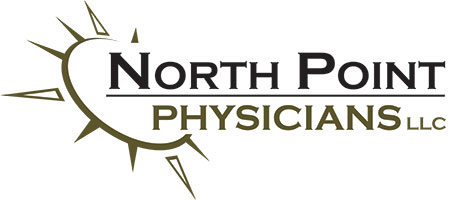Frequently Asked Questions
What is a DO?
Dr. Brogan and Dr. Luciani both have degrees in Osteopathic Medicine (DO). MD’s receive their degree in Allopathic Medicine. Students entering both DO and MD medical colleges both attend undergraduate college, typically completing a four-year degree with an emphasis on scientific courses. Both DO’s and MD’s complete four years of medical school, as well as completing graduate medical education through internships, residencies, and fellowships. This training lasts 3 to 8 years and prepares DO’s and MD’s for their specialty of choice. Some of these specialties include Family Medicine, Internal Medicine, Surgery, Pediatrics, and Cardiology. DO’s and MD’s must both pass comparable board examinations to obtain state licenses to practice medicine. Both entities practice in accredited and licensed health care facilities. Together, DO’s and MD’s enhance the state of health care available in the U.S.
Physician Assistant (PA) vs. Advanced Practice Registered Nurse (APRN)
Physician assistants and advanced practice registered nurses are part of medical teams that deliver high-quality health care in all fields of medicine. Both earn degrees at the master’s level, and both involve experience in inpatient care as well as in the medical field. Students pursuing PA or APRN degrees must complete four-year undergraduate degrees with a focus on science, medicine, and anatomy. Their training includes a didactic phase for medical education, as well as clinical (hands-on) portions.
They must both pass board examinations, as well as obtain state licensures in order to practice in their fields. They are both highly trained in taking medical histories, completing physical examinations, evaluating medical problems, and forming a differential diagnosis. They both order necessary supportive testing, including laboratory (blood) work, x-rays, CT scans, MRI’s, etc. They can also prescribe medications. Like doctors, they also require continuing medical education in order to maintain certifications and licensure.
So, what’s the difference?
Experience/school model: Although performing similar duties, there are some differences in the education, training, and experience between advanced practice registered nurses (APRNs) and physician assistants (PAs). APRNs are trained in the nursing field and have degrees in nursing. APRN programs are based on a nursing model (patient-centered, holistic, and preventative medicine). PAs are not trained in the nursing field and attend universities with physician assistant programs. PA programs are based on a medical model (disease-centered, the science of disease process, and preventative medicine).
Clinical Focus: APRNs clinical focus entails population specialties (adult, women’s health, pediatrics, etc.) and PAs clinical focus entails medicine specialties (primary care, emergency medicine, surgery, etc.).
Certification/board: APRNs are certified by the Board of Nursing and PAs are certified by the Board of Medicine.
Working with a physician: APRNs are not required to work directly with a physician, although many states require a collaborative agreement with a physician. PAs must work collaboratively with a physician, although direct supervision is rarely required.
Further education: APRNs can obtain doctorate degrees in nursing. PAs can further specialize with residencies in some disciplines.
Despite the differences between the degrees, PAs, and APRNs both fulfill a similar and valuable role in the healthcare system. Together, PAs and APRNs are able to extend the reach of healthcare services, as there is an increasing national shortage of physicians. By utilizing PAs and APRNs in our practice, North Point Physicians is able to provide quality and timely healthcare to our patients.
